Around the globe in the entire world of Bitcoin, Bitcoin wallets play a very important and integral role. They are a digital tool that you’ll need to store, send, and receive Bitcoins safely. If you’re new to Bitcoin and cryptocurrencies in general, then understanding what a Bitcoin wallet is and how it works is central to managing your digital assets effectively.
The following blog will serve as an all-rounded guide to Bitcoin wallets, reviewing the different wallet types available, how each of them works, and their safety features.
We will also give you tips on choosing the right Bitcoin wallet to suit your needs and preferences. Whether you’re getting started with Bitcoin or just looking to upgrade your current setup, this guide is really going to help you understand the basics of the Bitcoin wallet and make informed decisions.
Understanding Bitcoin and Cryptocurrency
Before getting into the depths of Bitcoin wallets, a little background information on Bitcoin and cryptocurrency is necessary.
It’s a form of digital currency that does not work on the lines of a central authority, such as a bank or the government. Bitcoin works without any intermediary institution to manage and oversee transactions. Instead, it uses blockchain technology to provide security and transparency in transactions.
It serves as the decentralized ledger for all transactions in Bitcoins. A network of users referred to as miners keep this ledger. Each transaction, before it gets recorded, has to be validated by the system, thereby avoiding fraudulent activities.
They are digital or virtual currencies whose security relies on complex cryptography. They empower transactions through complicated mathematical techniques and offer control over the creation of new units.
Bitcoin is a digital currency introduced in 2009 by an anonymous person or group of persons under the name Satoshi Nakamoto. It was the very first cryptocurrency and has given way to many other digital currencies, remaining the most recognized and widely used among them.
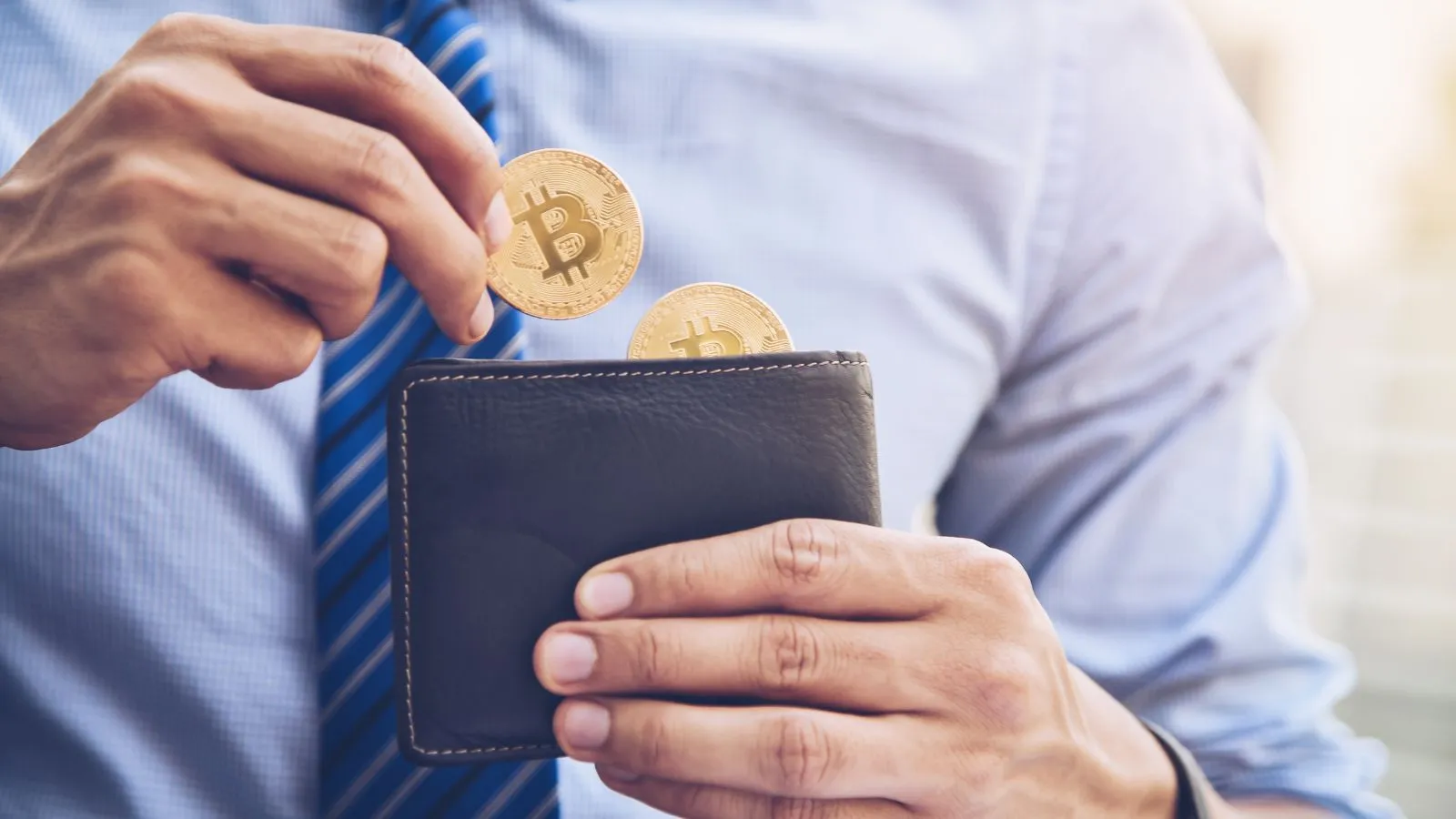
What Is a Bitcoin Wallet?
It’s what a physical wallet does to cash, very much like a Bitcoin wallet. It’s sort of a digital tool for handling your Bitcoin by storing, sending, and receiving it safely.
While a Bitcoin wallet does not literally hold money, just like its physical counterpart, it holds the cryptographic keys: private and public keys used in accessing and controlling your Bitcoins on the blockchain.
- Think of a public key like an account number that you would share with people in order to receive Bitcoin.
- A private key is a kind of secret code that allows someone to authorize transactions and, with that, take control of someone else’s funds.
These keys communicate directly with the Bitcoin blockchain, which keeps track of your balance. Your Bitcoin wallet safeguards these keys, so only you can get access to and manage your Bitcoin while keeping it secure against illegal access and theft.
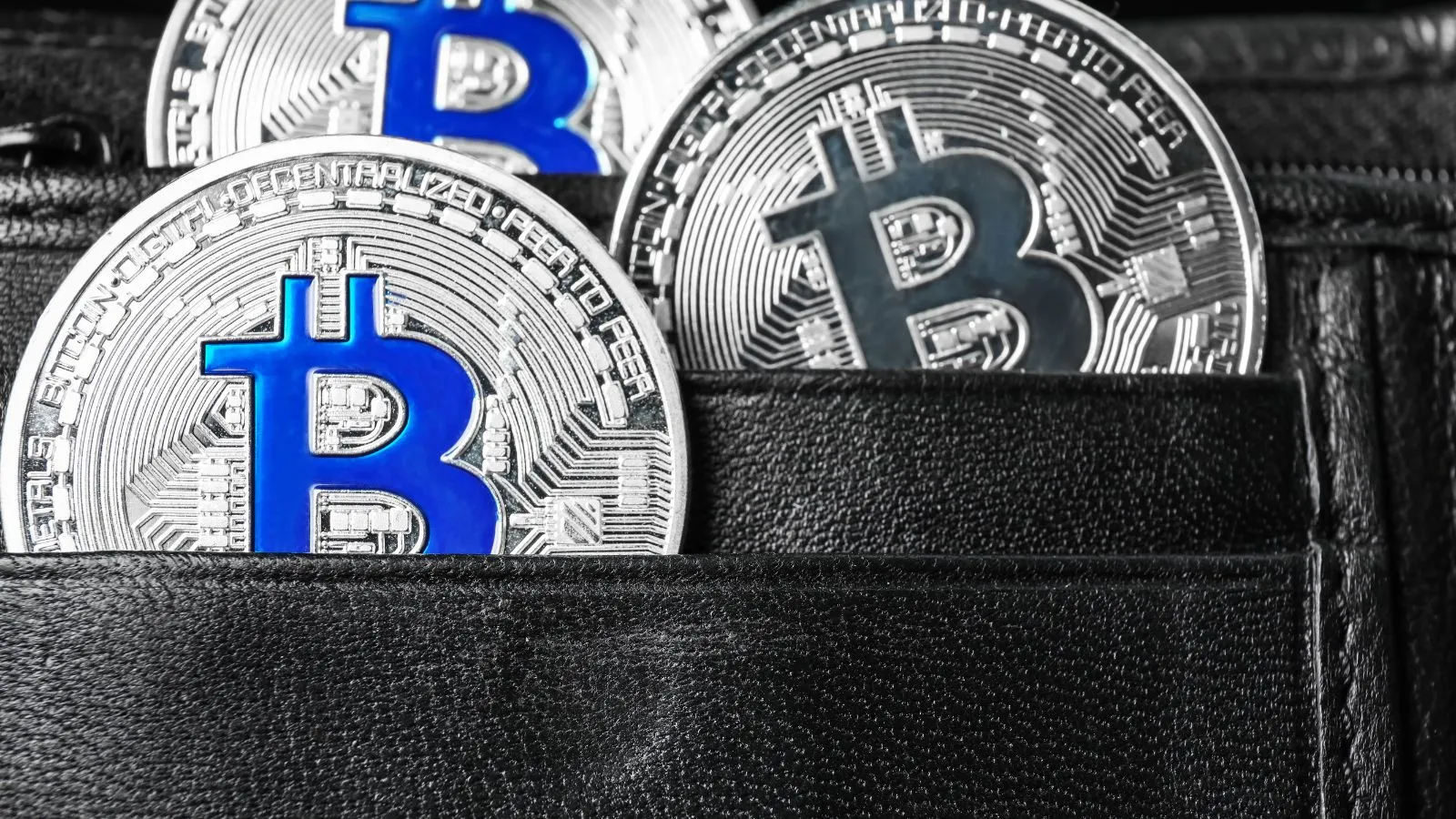
Types of Bitcoin Wallets
There are quite a number of wallet types, all with their unique characteristics and varying security levels. Knowing them will enable you to choose one that best suits your needs.
1. Hardware Wallets
Hardware wallets are physical devices designed for storing your Bitcoin offline. This brings a very high level of safety to it. Among the existing ones, this is seen as one of the safest options, as they allow one to keep private keys offline and away from hackers or malware that could infect a computer or mobile device.
You then connect the hardware wallet to a computer or mobile device via USB or Bluetooth to access and manage your Bitcoin. In doing so, your private keys never leave the device and are never exposed to the connected device or the internet. This secure way ensures protection from potential dangers to your private keys or Bitcoin in case of infection on your computer.
Some popular examples of hardware wallets include Ledger Nano S, Ledger Nano X, and Trezor.
2. Software Wallets
Software wallets are applications or programs that you can install on your computer or mobile device. They can be further categorized as desktop wallets, mobile wallets, and web wallets.
- Desktop Wallets: These are downloaded and installed on your computer and give you full control over your Bitcoin. They mostly appear secure but can be subjected to malware and hacking in case your computer is hacked. Examples include Electrum and Bitcoin Core.
- Mobile Wallets: These are applications installed on your smartphone. This provides convenience for on-the-go transactions, usually user-friendly. Examples: Mycelium and Trust Wallet.
- Web Wallets: These are web-based wallets that you access through your web browser. They’re super convenient but are generally considered less secure than a hardware or desktop wallet because they’re stored online. Examples include Blockchain.info and Coinbase.
3. Paper Wallets
A paper wallet is a document that physically holds your Bitcoin’s public and private keys offline, away from dangers online. This way is very secure since it eliminates the risk of digital hacks.
However, more caution should be exercised with this one as it is highly susceptible to loss, damage, and theft. Any kind of physical damage may lead to you losing your Bitcoin. You will be required to transfer your private key into a software or hardware wallet to perform any transactions from a paper wallet.
Nearly every time, this is done through scanning or typing in the key into a digital wallet to make the transactions and then keeping the paper wallet safe.
4. Brain Wallets
A brain wallet in Bitcoin is a wallet in which you have memorized a passphrase or a set of words from which to compute your private key. It means that rather than storing your private key on a physical device or even paper, you literally depend upon your memory for security.
The passphrase that you create gets converted to a private key through a process called hashing. The private key allows you to unlock your Bitcoin and take control of it. This does avoid physical storage, but at the same time, it places great responsibility on the user to remember the passphrase correctly.
In the case that you forget it or it gets compromised, you are locked out of your Bitcoin since there isn’t a way for recovery or reset.
As such, using a brain wallet calls for a great deal of care and excellent memory to ensure one is always able to get access to their digital assets.
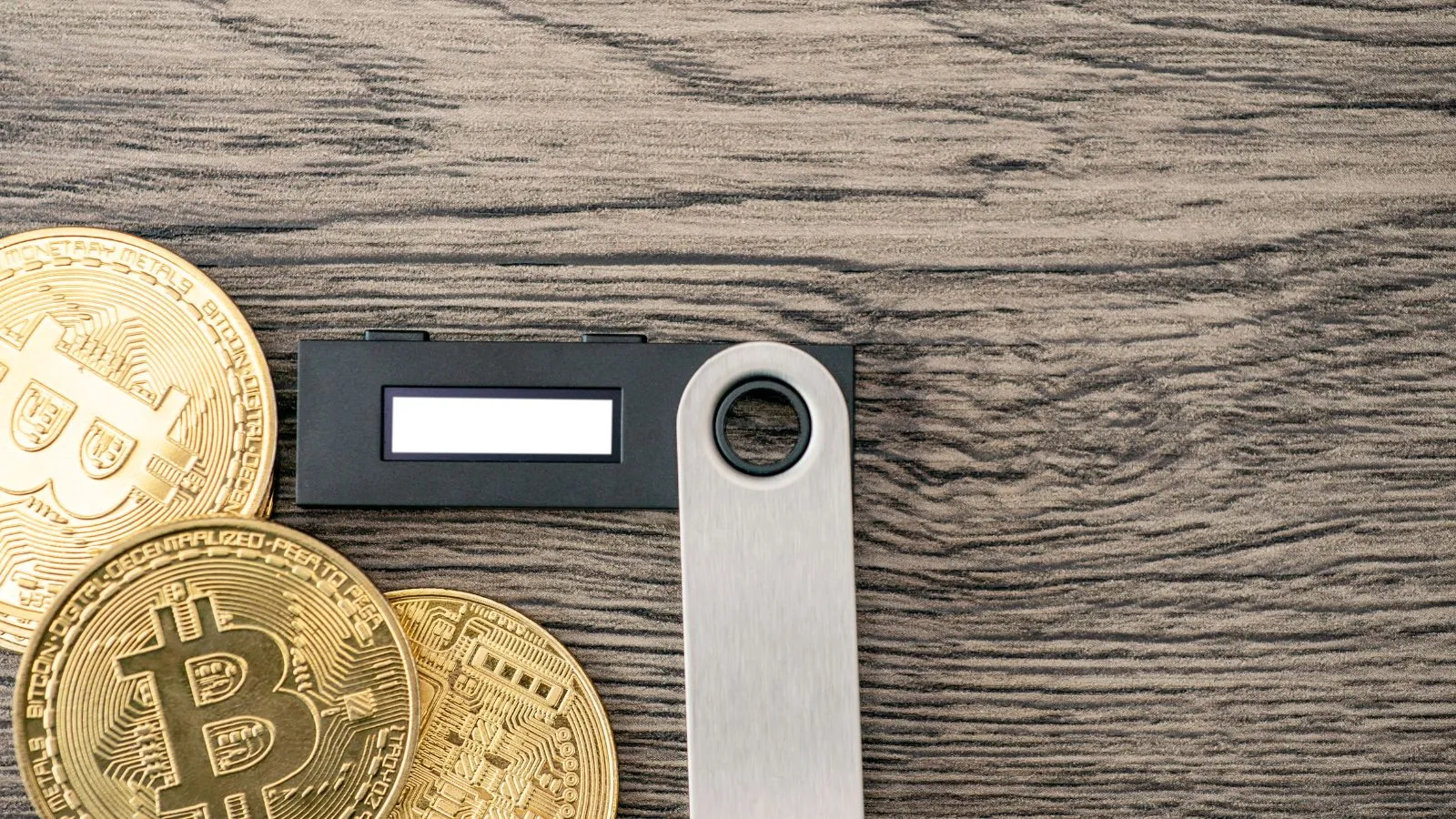
How Bitcoin Wallets Work
Bitcoin wallets work by maintaining your private and public keys. The following is an explanation of how they do this in detail:
Public Keys
In Bitcoin, a public key is a unique cryptographic code used for receiving Bitcoin transactions. You may think about it as a bank account number in a real-world banking system. You give people the ability to send Bitcoin to your wallet whenever you share your public key with them.
Private Keys
A private key is a code that can access and manage Bitcoins. More accurately, it’s kind of like a PIN or password for your bank account. Don’t give this to anyone —- this gives full control over your Bitcoin.
When you want to send Bitcoin, your wallet signs the transaction with your private key, thereby proving that you are the owner of the Bitcoin being transferred. Then it broadcasts the transaction over the Bitcoin network in addition to the blockchain.
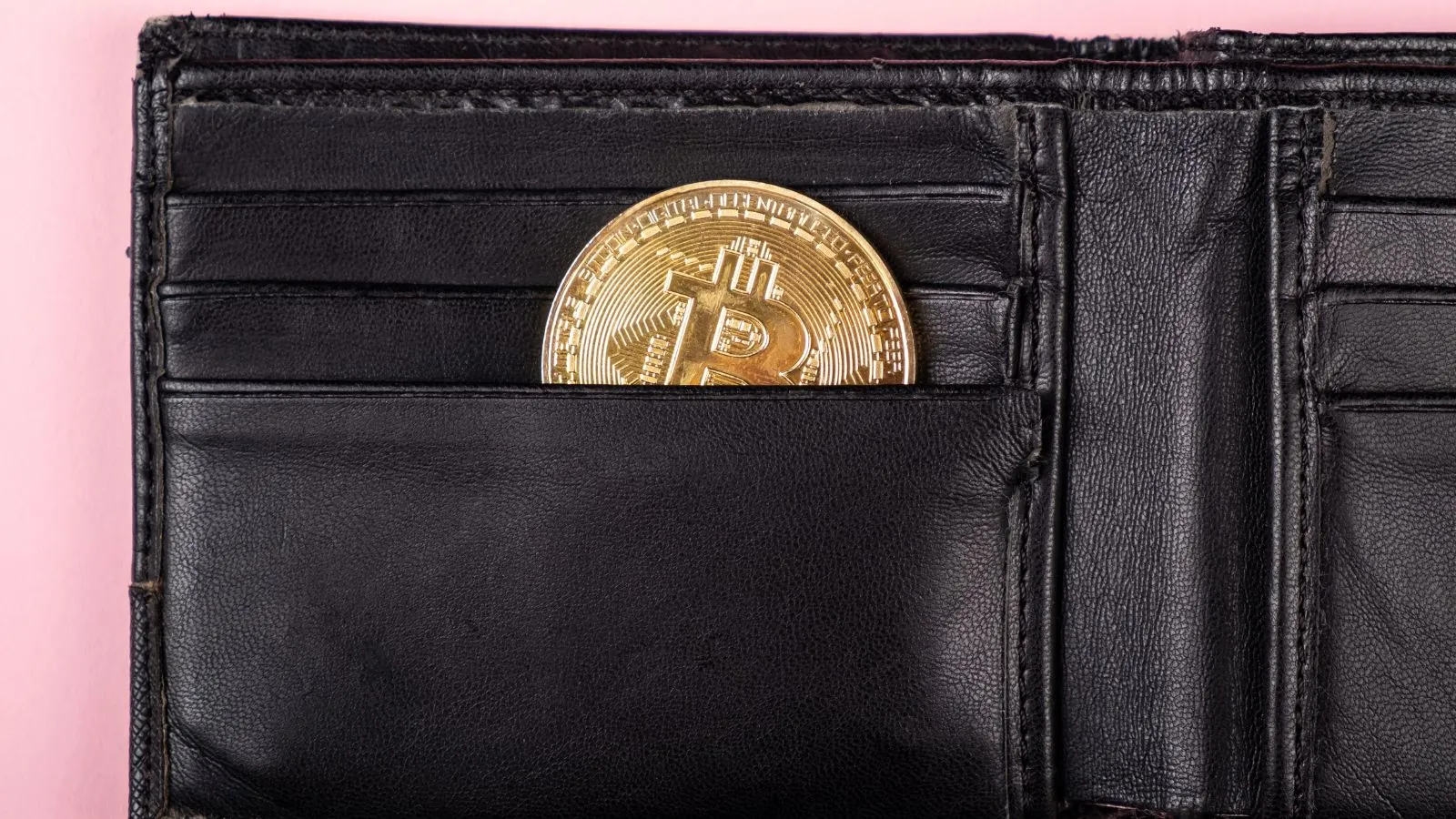
Setting Up a Bitcoin Wallet
Setting up a Bitcoin wallet is pretty straightforward but differs for every form of wallet chosen. Here are the general steps to set up various kinds of Bitcoin wallets.
Hardware Wallet
- Buy a Hardware Wallet — acquire a hardware wallet from a reputable manufacturer.
- Initialization of Device — just follow the initialization instructions normally involving the setup of a PIN and generating a recovery phrase.
- Download and install — the wallet software by the manufacturer on your computer or mobile.
- Now, connect the hardware wallet to your device — the steps will appear on how to set it up.
- Generate public key — Lastly, use the wallet software to create a public key to receive Bitcoin.
Software Wallet
- Buy: Choose the wallet that is best for you.
- Download and Install: Download the wallet from the given source and install it on a computer or mobile.
- Create a New Wallet: Click “Create a new wallet”. Typically this will involve creating a password and a recovery phrase.
- Receive Bitcoin: Create a public key, and generate using a public key to receive Bitcoin.
Paper Wallet
- Generate Keys: Using a trusted online utility, generate a Public Key and Private Key pair.
- Print the Keys: Print it on a piece of paper and store it in a secure location.
- Receive Bitcoin: Receive Bitcoin with a public key.
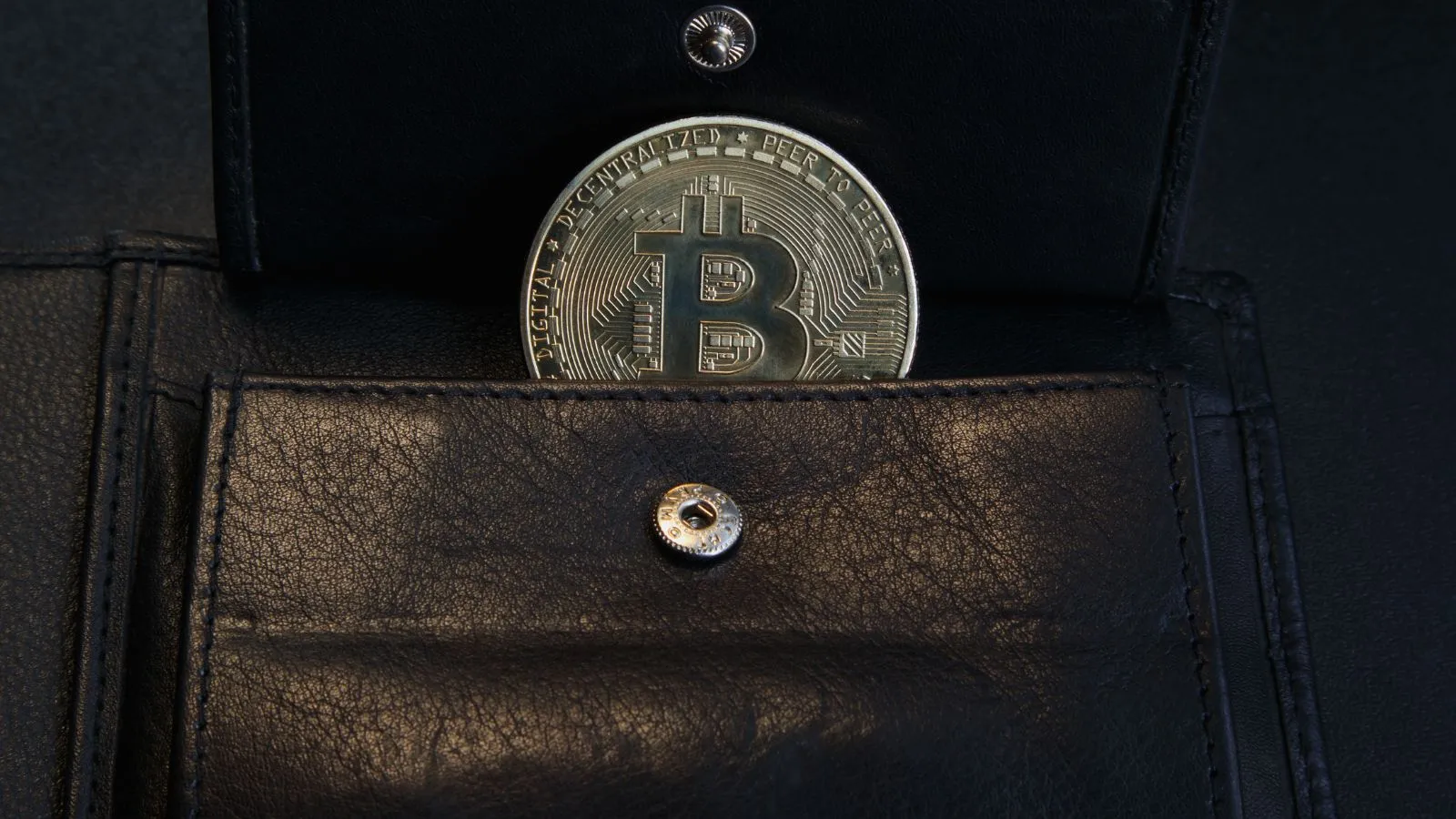
Security Tips for Bitcoin Wallets
Protection of your Bitcoin wallet is the epitome of safety over your assets. Here are the most basic security tips to follow:
1. Backup Your Wallet
Make copies of your cryptocurrency wallet and, most importantly, the private keys and recovery phrases. Store these copies in multiple secure locations to reduce the risk of loss through theft, damage, or any other unforeseen circumstances.
2. Strong Passwords
Be sure to have strong and unique passwords for your wallet and all related accounts. A strong password is one that is at least 12 characters long, with a mix of upper and lower case letters, numbers, and special characters, excluding easily guessable information.
At the same time, create a unique password for every account. This way, in case one is compromised, all the rest will remain safe.
3. Enable Two-Factor Authentication (2FA)
Setting up two-factor authentication in your Bitcoin wallet and in the accounts related to it adds further protection. 2FA makes sure that it’s not only your password that you need to enter to access your account but another form of verification as well.
Usually, when turning on 2FA, you are asked to provide a code sent to your phone or generated with an authentication app besides your usual password. So, in case someone has your password, he/she will still need the second type of verification to access your account.
This additional step insulates your Bitcoin from unauthorized access and greatly increases the degree of difficulty for hackers to take control of your wallet.
4. Keeping Software updated
Updating your wallet software, and all dependent applications regularly, is a requirement for security as well as functionality of your Bitcoin wallet. Software updates generally have security patches built into them.
Updates can add new features, improvements, or even performance and usability that may affect your wallet. Set reminders to check for updates frequently and turn on automatic updates, if possible, to be safe from new threats and to have new advantages at your disposal.
Keeping your software up-to-date helps in safeguarding your digital assets and keeping your wallet running smoothly.
5. Be Careful with Public Wi-Fi
Never log into your Bitcoin wallet from public Wi-Fi networks; most of these are insecure and could easily be hacked. If you must, use a virtual private network to encrypt your connection.
6. Store Private Keys Offline
Wherever possible, store your private keys offline with a hardware wallet or an extremely secure physical location. Hardware wallets are actual physical devices that keep your private keys not connected to the internet, which reduces the risk of hacking and theft to close to zero.
Alternatively, you can write down your private keys and store them in a safe or any other type of safety deposit box where they cannot be threatened digitally.
By keeping your private keys completely offline in this way, you provide an extra layer of security to your Bitcoin holdings, making the process much more difficult for hackers to access your assets.
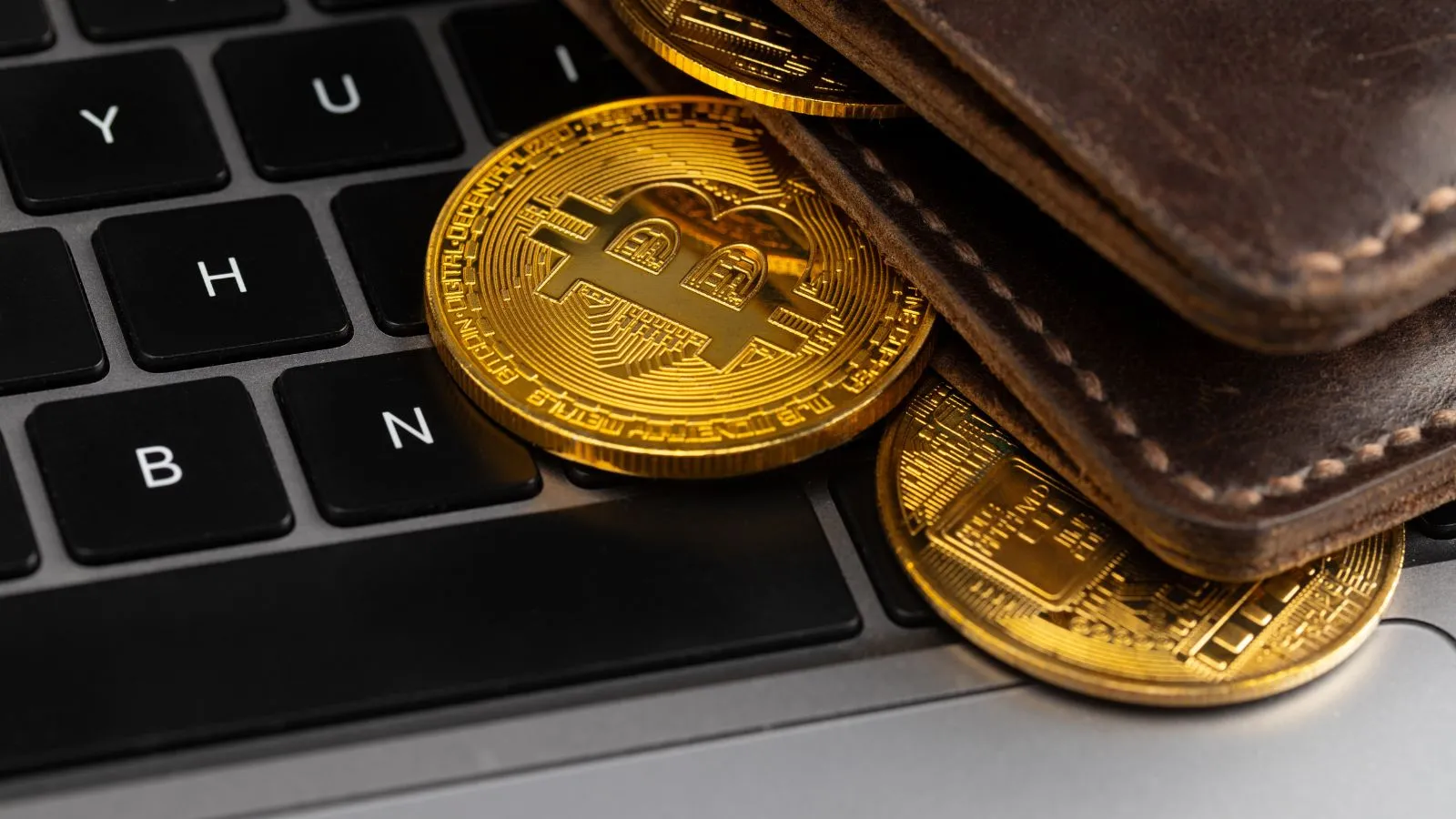
Choosing the Right Bitcoin Wallet
The choice of which Bitcoin wallet to use is determined by the needs, preferences, and level of experience of each user. The following are the main parameters to consider when choosing:
1. Security
When choosing a Bitcoin wallet, security is one of the most important considerations. Hardware wallets and paper wallets are more secure than software wallets since they keep your private keys off the online environment.
Yet, software wallets can be secure if you follow recommended online security practices. Keep your computer or mobile device clean; install current and top-of-the-line antivirus software, and have a strong firewall. Back up your wallet regularly to an encrypted external drive or a secure cloud service.
In addition to this, create strong, unique passwords, and turn on two-factor authentication for better protection.
2. Convenience
First of all, it will be good to consider the frequency at which you will be using the wallet and for what purpose. In case you want to send regularly or need your Bitcoin on the go, then mobile or web wallets are more convenient to use and access. These wallets allow you to send and receive Bitcoin in just a few taps, so they’re perfect for everyday use.
On the other hand, if you want to hold your Bitcoin for a long period and maximum security is the main objective, then hardware or paper wallets will be more suitable for you. The only difference made by these wallets is that they keep private keys offline—hence safeguarding assets against online threats.
Assess your needs of use, which will help in determining what wallet is best for you according to your needs.
3. Features
Different wallets come with different features, which, in turn, have multi-signature support—some wallets actually require more than one approval before transactions are executed—thereby adding an extra layer to the security of the wallet. Others would integrate with other cryptocurrencies, thus allowing one to manage other assets in one’s wallet.
More user-friendly means of getting around and managing your funds in a wallet, especially for those relatively new to such features in digital coins. Consider the features important to you, security measures, usability, and compatibility with other virtual assets, and go for the wallet that best serves your personal needs and preferences.
4. Reputation
Select a wallet developed by a reputable provider with proven records of security and reliability. Most of the time, respectable providers would boast great security measures and regular updates with transparent practices.
Second, read through reviews users have written and expert analysis about performance and customer support. Independent research into the history of the provider is important, looking for previous security breaches or issues.
You can best protect your Bitcoin and other cryptocurrency from potential threats if you choose a wallet from a reputable and trusted source.
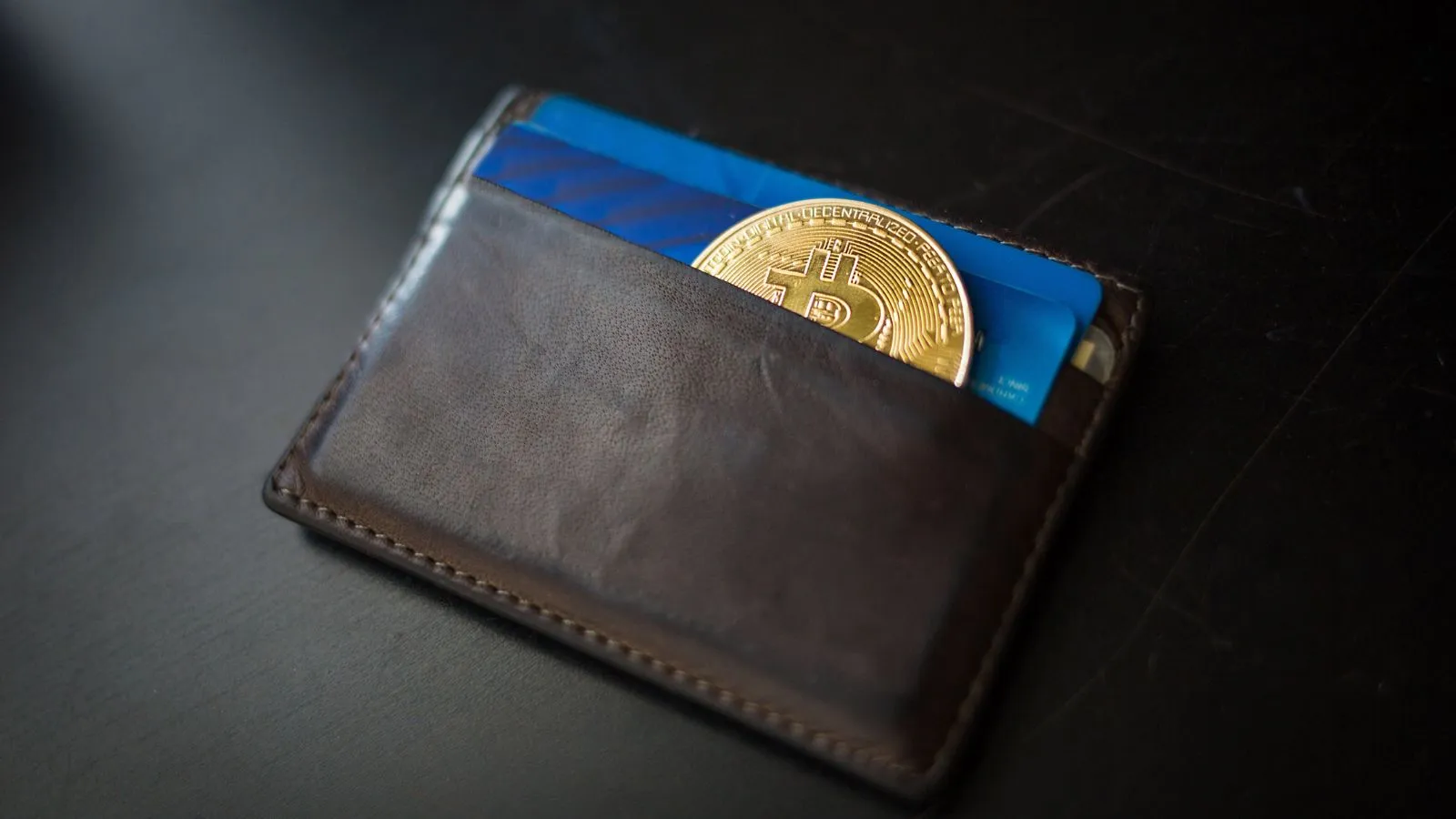
Common Bitcoin Wallet Mistakes to Avoid
Know the common mistakes in your Bitcoin wallet journey that would risk your safety and result in loss of funds. Here are some mistakes you should avoid:
1. Sharing Private Keys
Never give out your private keys to anyone. Your private keys are what grant access to your Bitcoin, so by distributing them, others will have full control over the funds. By doing this, it can result in access and stealing of your Bitcoin.
Even if he/she says he belongs to the support team or any other trusted group, make sure to check the authenticity through the official channels before revealing any sensitive information. Since keeping your private keys safe is important for securing your Bitcoin, this makes sure that your assets are withheld from hackers.
2. Forgetting Backups
Failure to back up your wallet could lead to the irreversible, total loss of all your Bitcoin upon the loss or theft of your device, or its destruction. Backups can assure you of recovering your funds when anything happens to your primary device.
Generally, ensure that there is a secure backup of your private keys and recovery phrases, and store them in multiple safe places, which can either be encrypted external drives or even physical safes.
This will ensure that you do not, at some point, lose access to your Bitcoin because of an unfavourable event; you will be able to restore the wallet and recover the assets therein.
3. The Use of Unsecured Devices
Malware-infected devices, or weak ones, can easily put your Bitcoin on the line. The malware targeted the private keys and sensitive information that may be restored to gain unauthorized access, thus, theft of funds.
Thus, safety is ensured by the guarantee that all your devices are safe: keeping the operating system and antivirus up to date by running complete security scans in search of malware presence, eliminating them if found.
Also, avoid logging into your wallet from public or shared computers, since these will almost certainly be vulnerable. You are then keeping the environment safe and, by extension, reducing the risks of your Bitcoin being compromised and keeping your assets safe.
4. Falling for Phishing Scams
Be careful about the possibilities of phishing, where attackers create and manage fraudulent plans to compel you to reveal your private keys or other personal information. Mostly, these are spoofed websites or emails that are made to appear like a reputed service provider to steal your credentials.
Never click suspicious links or give out personal information unless you’re sure who it is. Be safe from phishing attacks by being vigilant and double-checking whether the communication is valid for the protection of Bitcoin assets.
5. Forgetting Passwords
Forgetting your wallet password will irrecoverably lock you out of your Bitcoin. This is to say, you can’t get access to your funds. Prevent this undesirable situation by using a password manager to protect your passwords.
They can generate strong and unique passwords and store them in a vault, encrypted, for you; this way, you will never need to remember any of them. In addition to this, the manager provides you with secure ways to share passwords with others and backup, thus solving another headache.
Applying the idea of a password manager reduces the risk of losing your wallet due to forgotten passwords and, at the same time, ensures your credentials are well-protected from unauthorized access.
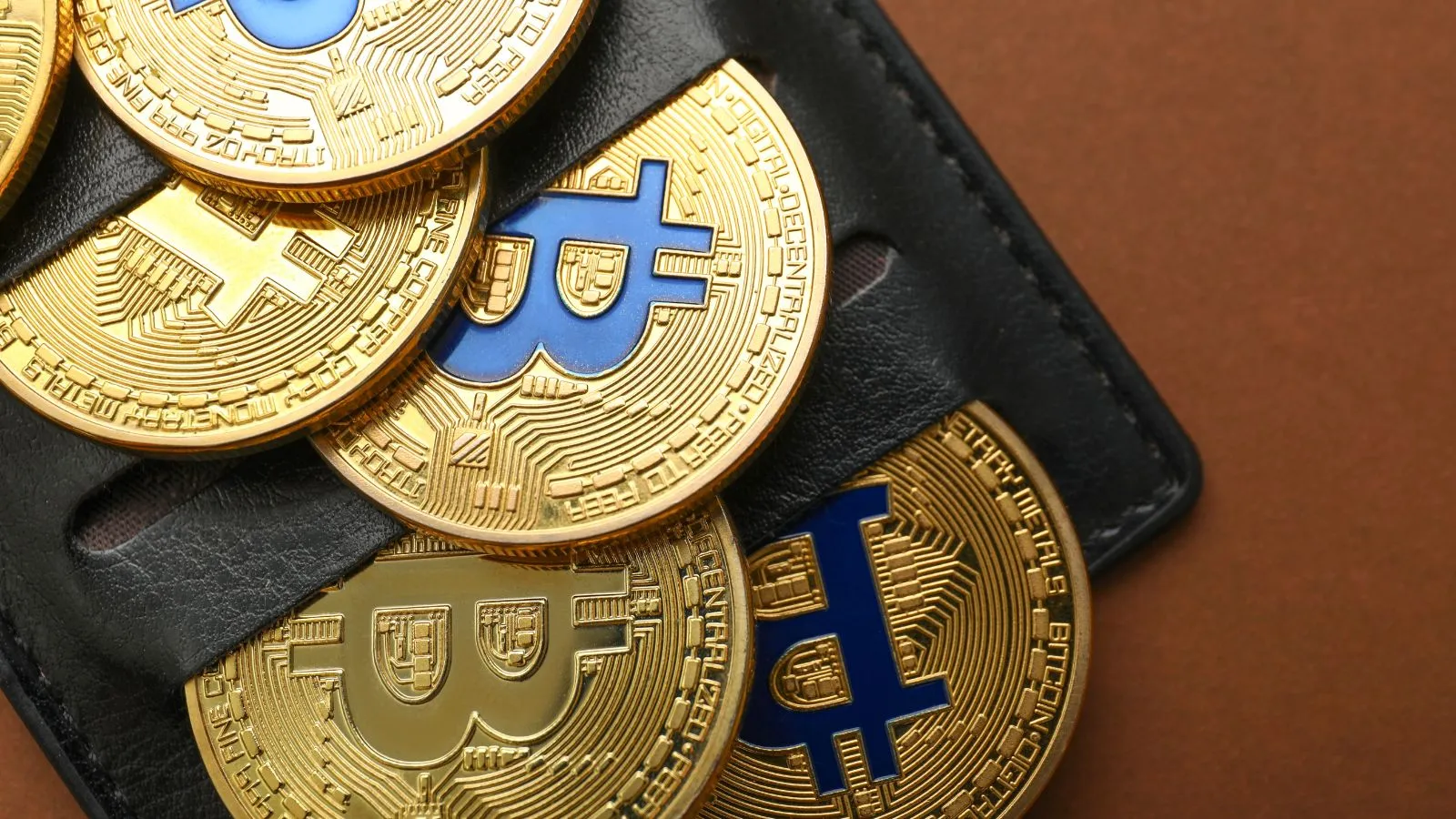
The Future of Bitcoin Wallets
As the cryptocurrency ecosystem is evolving rapidly, Bitcoin wallets are going to experience manifold development shortly, especially in security, functionality, and user experience. Following are a few such developments:
1. Advanced Security Features
In the near future, advanced security features, such as biometric authentication, hardware security modules, and multi-signature technology, might find their way into wallets to protect users’ assets.
2. Rich User Interfaces
Wallet developers never stop improving the user experience and try to make wallets more intuitive and user-friendly. This includes the easiness of performing private key management and transactions.
3. Integration with Financial Services
With the increasing adoption of cryptocurrencies, Bitcoin wallets may integrate traditional financial services that will let users manage digital and fiat currencies in one place seamlessly.
4. Higher Accessibility
Efforts are underway to make Bitcoin wallets easier to use for everyone across the world, particularly in countries with extremely low banking populations. This would entail developing wallets that would run on low-end devices and have low data requirements.
5. Regulatory Compliance
With governments and regulatory bodies making clearer their guidelines concerning the legality of cryptocurrencies, Bitcoin wallets may increase the inclusion of features that can help users comply with these regulations.
For example, wallets could provide built-in identity verification processes to meet AML requirements and KYC standards. Some may integrate tax reporting tools so one can easily keep track of his or her transactions to calculate any taxable gains or losses.
Such features would thus facilitate compliance with regulatory requirements, making it easy for users to act in compliance and avoid possible legal problems if they choose to buy or sell cryptocurrency like Bitcoin.
Final Thoughts
In a nutshell, the Bitcoin wallet is one of the most fundamental tools that someone should have in order to interact with the world of Bitcoin and, more generally, cryptocurrencies at large. Different types of wallets, their mechanics, and best practices in terms of security will allow one to make good choices for their digital assets.
Whether you go in for a hardware wallet to maximize your security, a mobile wallet for convenience, or a paper wallet for offline storage, the key is to remain informed and vigilant. Keeping pace with the changing landscape of cryptocurrencies, especially in terms of development and security practices, is the only way forward with confidence through this exciting and dynamic space.
A wallet, in essence, is something much more than a digital device and acts as a stepping stone to digital entry into the decentralized economy that will soon be. By spending enough time on features and functionalities, you can harness the entire power of Bitcoin to confirm that your assets are safe and secure.
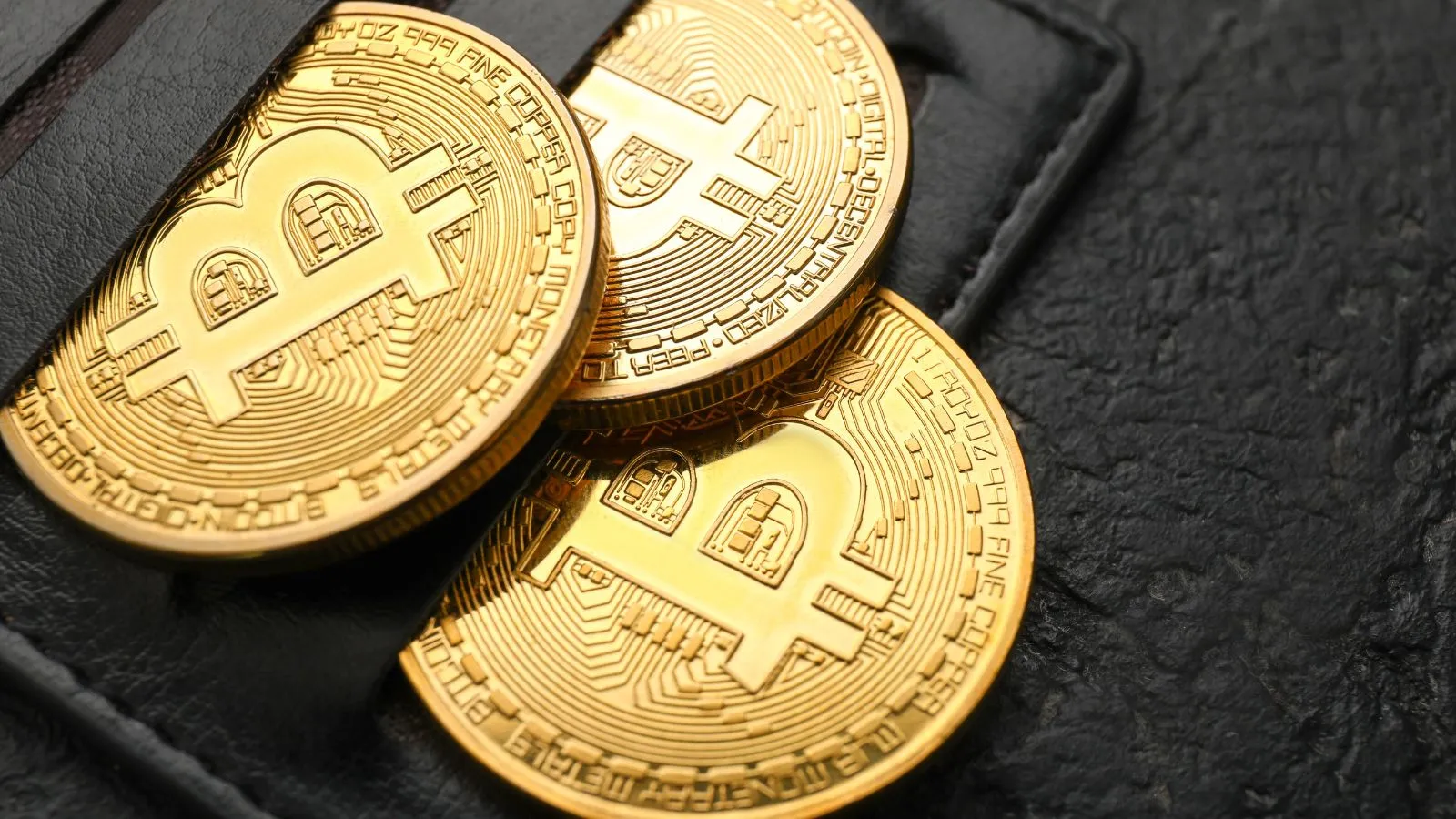

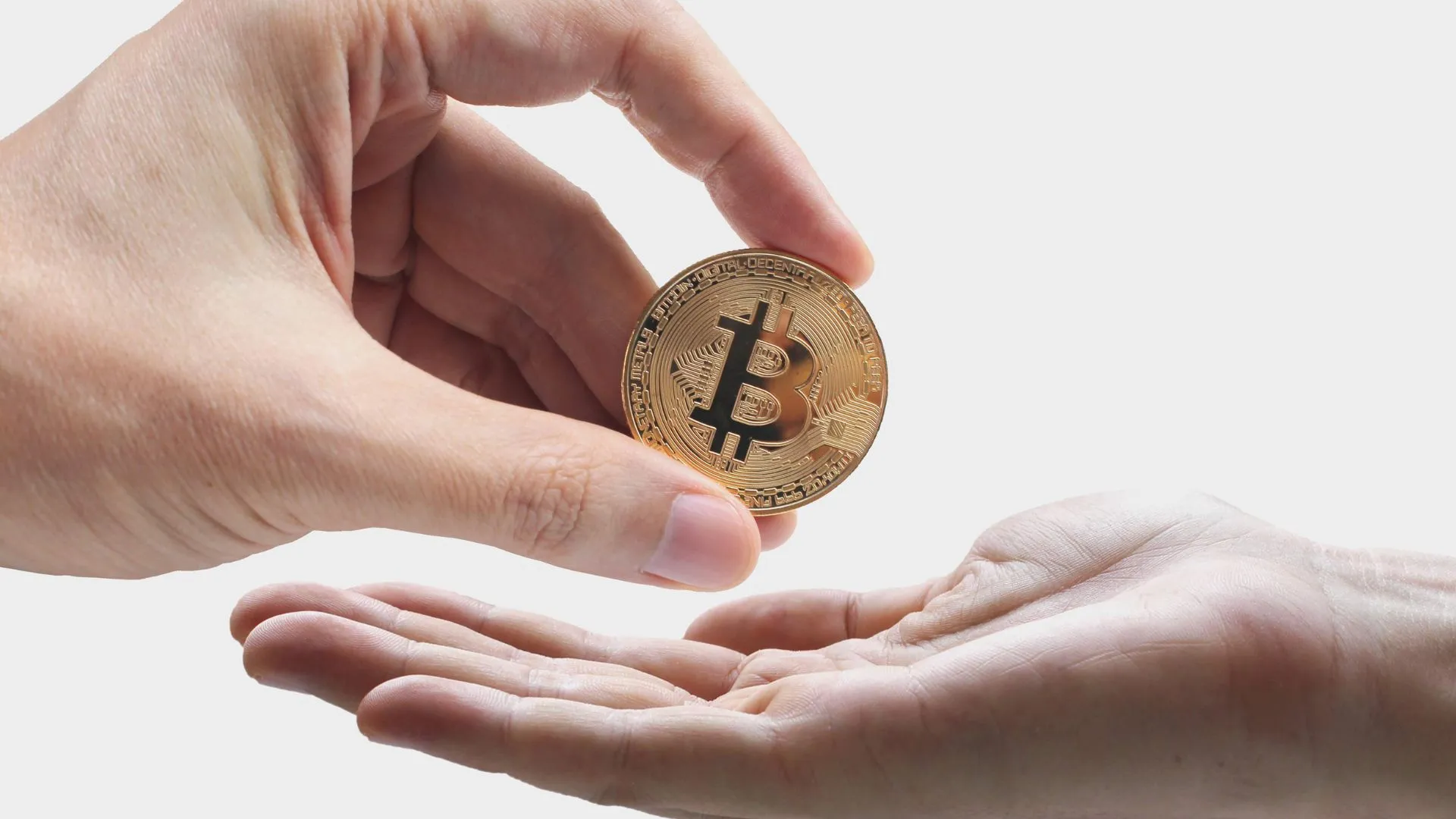

Recent Comments